
Ever get the feeling that your body has a mind of its own?
Meet your emotional homunculus, the part of the brain that uses feelings and emotions to decide how we will act and react.
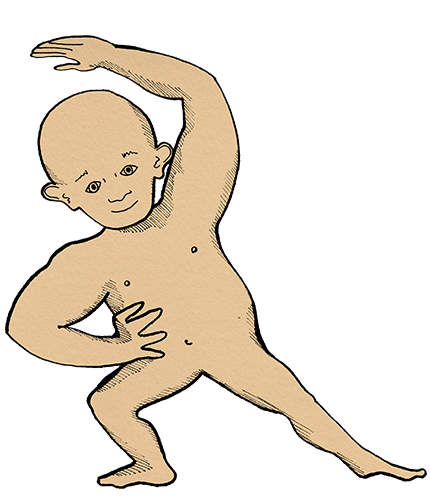
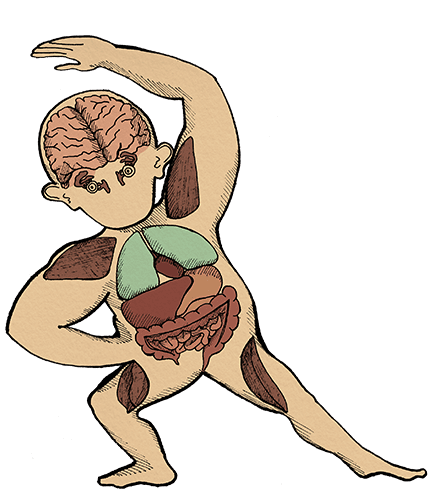
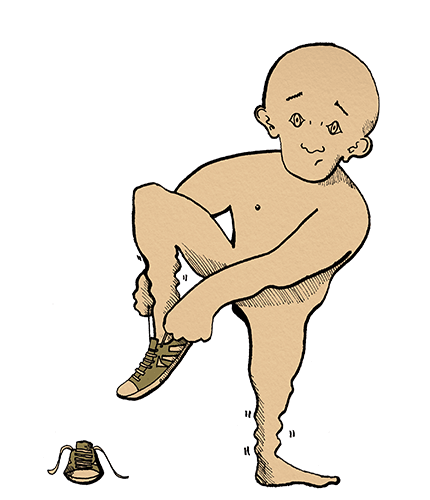
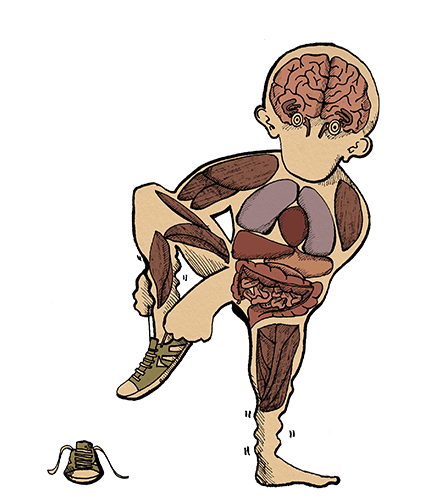
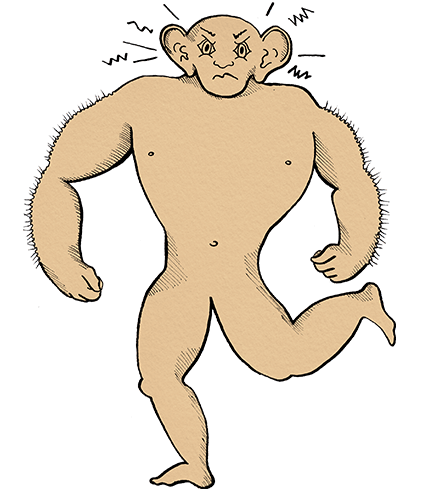
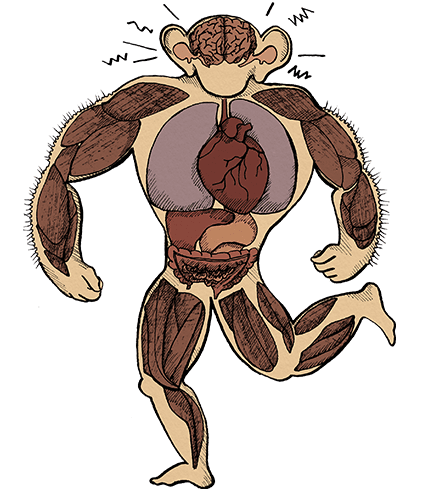
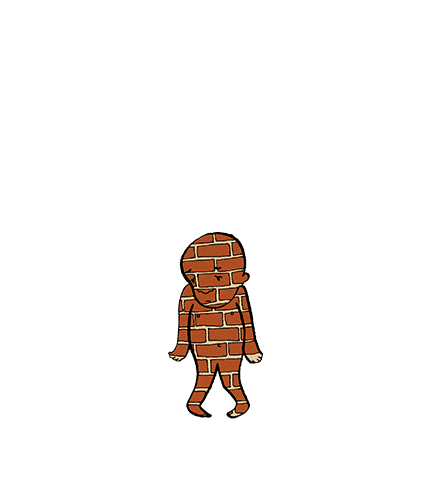
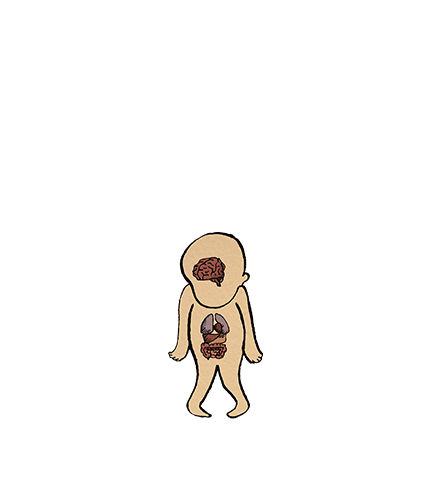
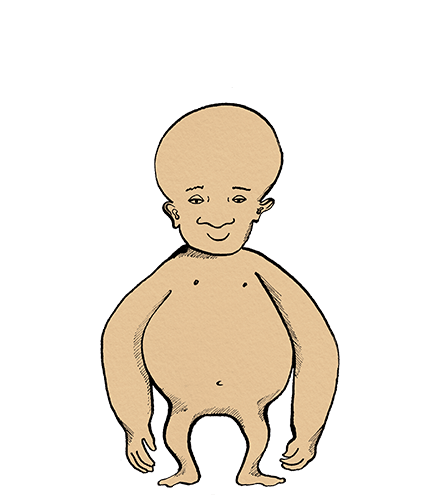
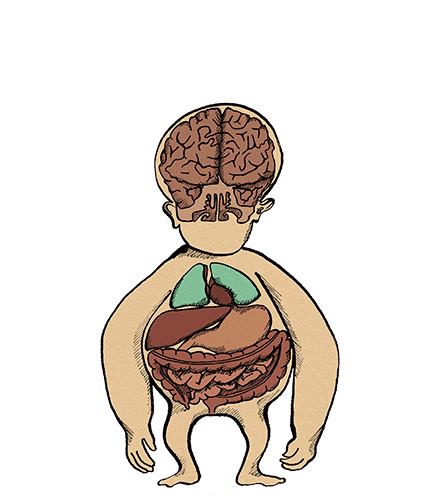
The State you're in...
Fight or Flight
"Aargh! I’m angry and scared."
"I can’t control how I’m feeling; everyone looks so hostile and aggressive. Should I run away or should I start shouting? I’m about to lose it…"
The science bit...
Your blood pressure increases and your heart rate rises rapidly. Your muscles are oxygenated and tense; your lungs expand and contract, forcefully pulling more oxygen into the body to distribute to the muscles. Your pupils dilate to allow more light into the eyes to improve vision and perceive any threat. All of your senses are heightened, saliva is reduced making your mouth become dry.
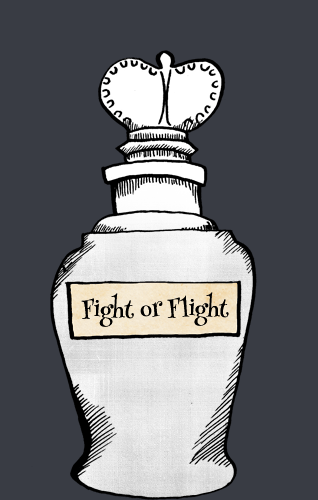
The Brain’s “Action Drug” releases energy to fight or flee a real or imaginary threat.
The Brain’s “Protective Drug” buffers against the impact of stress.
WARNING: repeated or excessive use of either of these drugs is damaging to your health!
Fight or Flight is an instinctive reaction to a perceived or real threat or danger.
Over time raised Cortisol and Adrenaline levels suppress our rational thinking so the Fight or Flight response is easily triggered. This makes it hard to think clearly and to consider others during conflict.
If you notice your breathing getting fast and shallow, and your muscles tensing - then take a moment before continuing and step away from the situation. Feeling safe will help you to think more clearly and relate to others.
Freeze & Shutdown
"I’m scared. I feel so overwhelmed."
"I want to be invisible. If I’m really quiet and sit still then maybe it’ll all go away. If I just go through the motions then maybe they’ll all just leave me alone..."
The science bit...
Your blood pressure drops, your muscles flop sometimes causing you to feel weak or like you’re outside your own body; you’re collapsing in on yourself. Your body temperature falls and your brain function is severely reduced. Your eyes, whether shut or open, receive less visual stimuli; all your senses are numbed to protect you from unpleasant or painful experiences.
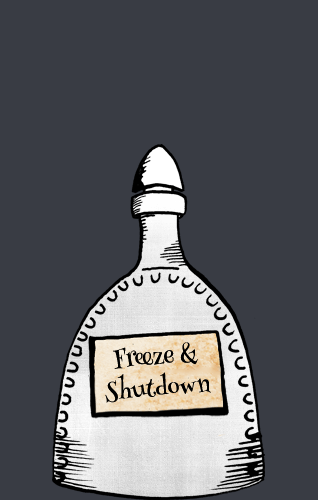
The Homunculus shuts down the Brain’s Amazing Drugs Cabinet to keep the body in an state of emotional stasis.
The Brain’s “Protective Drug” floods the whole body.
Warning: Too much Cortisol, left in the body for too long, can cause damage to organs and the immune system.
You are completely overwhelmed.
You are no longer able to take part in challenging conversations. Although you hear what others are saying, it may make little sense to you and you can’t take anything in.
Even though it can feel difficult it’s a good idea to speak to someone you trust.
Rest & Digest
"I’m chilled out."
Rest and Digest
"I feel relaxed and content. I might not be saying much but I’m open to ideas and affection."
The science bit...
Your body’s resources - oxygen and blood - are directed mainly to your stomach to aid digestion. Digestive juices are released in your mouth and stomach and your heart rate drops. Bronchial tubes in your lungs constrict as you need less oxygen in the absence of physical exertion. Your muscles relax and the pupils in your eyes constrict as levels of alertness drop.
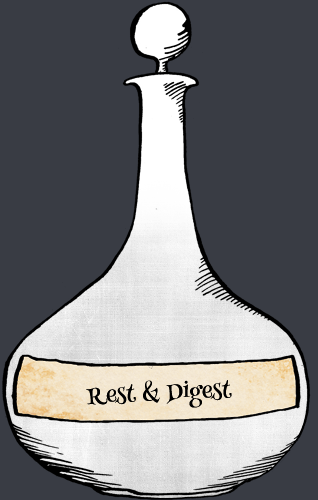
The Brain’s “Love Drug” promotes feelings of love and reduces anxiety.
The Brain’s “Mood Drug” enhances the positive effects of the other drugs.
The Brain’s natural “Tranquiliser” creates a sense of satisfaction and relaxation.
Feeling confident, relaxed and loved means that this is a good state in which to talk and listen.
Deep breathing exercises, getting some fresh air or chilling to your favourite band, can ease us into this relaxed state.
It can be tricky if other people are reacting differently because they are in another emotional state. Find a time when you are both open and willing to talk about what you need from each other.
Alert & Engaged
"I’m optimistic and energetic!"
"I feel prepared for anything and ready for action! I’ve got plans and I’m really looking forward to them. Want to come along?"
The science bit...
Your heart rate increases in anticipation of activity; the bronchial tubes in your lungs begin to dilate as more oxygen is needed by your muscles which contract and tense; your pupils dilate to absorb more light and your senses of touch, smell and hearing are also heightened.
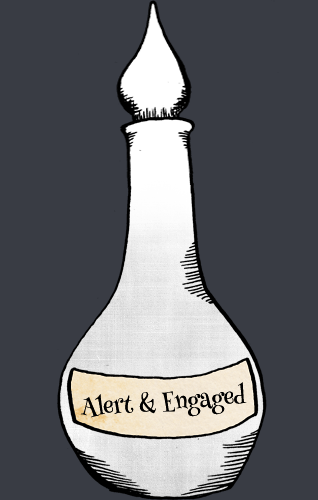
The Brain’s “Anxiety-alleviating” and “Alertness-inducing” drugs are in balance promoting both excitement and relaxation.
The Brain’s “Joy Drug” creates a sense of anticipation, accesses positive memories and also enhances the effects of the other drugs.
The Brain’s “Action Drug” releases energy and increase the body’s strength and agility.
When we are alert and engaged we are able to concentrate better, see the bigger picture and deal with difficult issues. We are able to focus on a number of things with equal intensity.
Alert and Engaged can tip over into Anxious and Afraid or even Fight or Flight. Stay aware of your emotions, focus on positive memories and don’t let your excitement make you ignore other people’s feelings.
Anxious & Afraid
"Uh-oh, I feel like something’s wrong..."
"I’m flooded with feelings of nervousness and dread. Everything and everyone looks like a potential problem. The last time I felt like this things went badly wrong - and they will again…that makes me even more worried and anxious."
The science bit...
Your stomach feels “tied up in knots” as digestive juices dry up. Your blood vessels constrict, and your blood pressure rises as your heart battles to pump blood to your muscles to tackle potential threats. The bronchial tubes in your lungs dilate and breathing becomes faster to take in more and more oxygen and get rid of carbon dioxide.
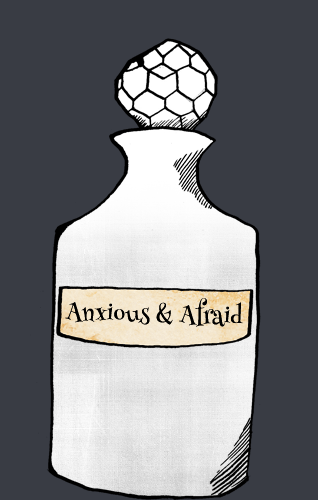
The Brain’s “Alertness-inducing Drug” increases anticipation of stress and “buffs you up” while the Brain’s “Anxiety-alleviating Drug” soothes and calms the system.
The Brain’s “Protective Drug” protects the body against stress.
The Brain’s “Action Drug” releases energy in case the stressful stimulus begins to feel dangerous.
When we are Anxious and Afraid, we can look for problems that may not even exist because of your past experiences. We tend to focus on the negative and find it more challenging to imagine things could be different.
Remember to keep your breathing even and your muscles relaxed. Try and remember a time when you felt happy and confident to shift your homunculus into Alert and Engaged or Rest and Digest.